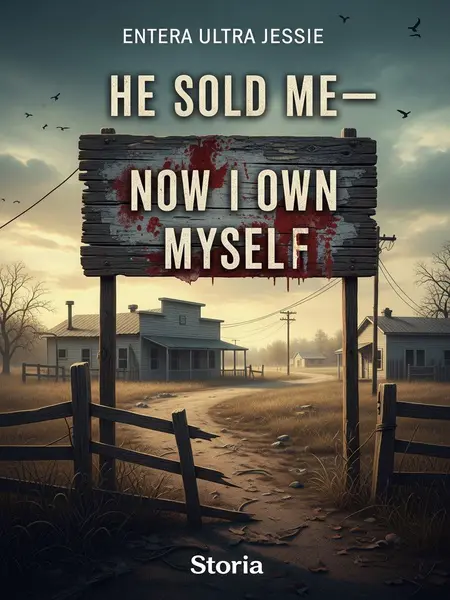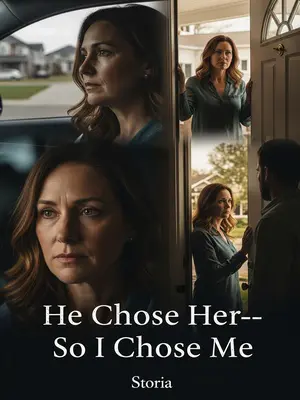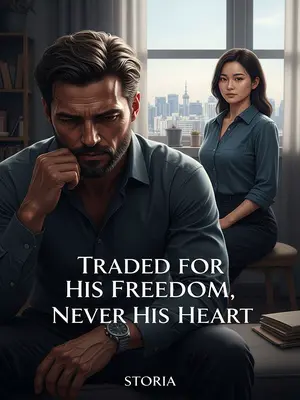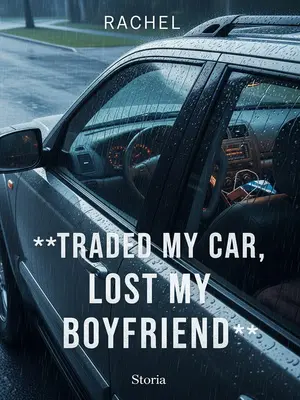Chapter 1: The Price of a Daughter
My dad always thought I wasn't really his kid.
He'd say it like it was a fact—sometimes I'd catch him staring at me across the kitchen, squinting through a fog of cigarette smoke, like he was trying to spot some piece of himself in me and finding nothing at all. The whole thing just hung there between us, heavy as a cold draft you can't block out, no matter how tight you shut the doors. Sometimes I'd wonder if I could ever feel warm in that house.
When I was seventeen, he sold me off to someone else.
He didn't even bother to hide it. It wasn’t some secret deal in the dead of night, or anything. He talked about it right at the dinner table, matter-of-fact, like trading me away was about as important as changing a flat tire. His voice had this weird, proud edge to it, like he was doing me some kind of favor. I remember thinking, is this really happening to me?
They told me, "You're the big sister, you should help out your little brother. Come on, what's wrong with sacrificing a little for your family?"
I said yes. I said it, and the word echoed in my head—yes, yes, yes—like it was the only answer I was allowed.
What else could I do? Their eyes were on me, cold and expectant, and the weight of their disappointment pressed down until I felt small enough to disappear. I said yes. It tasted like dirt in my mouth.
On my wedding day, no one came to see me off. My parents were too busy fawning over their son. I remember standing in the doorway, half-hoping someone would call my name, but all I heard was silence. Only the little pig I'd raised for years came running, snorting at me through the fence.
The yard was empty except for Penny, her bristly back pressed against the wire, her snout rooting for scraps. When she saw me, she let out a low, mournful grunt. I knelt down in my white dress—mud splashing my shoes—and pressed my forehead to hers. For a second, I almost cried. Just for a second. Then I swallowed it down.
That's when it hit me: Even an animal'll care about you if you raise it long enough.
There’s a kind of loyalty in animals that people just don’t bother with. People? They never bothered. Penny didn’t care who I was, or what I was worth. She just knew I’d always fed her, and that was enough.
My dad always thought I wasn't his kid. Sometimes, I wondered what that really meant—if it was about me, or just about him.
He’d say it to anyone who’d listen, especially after a few drinks. It was the story he liked to tell most—how he’d been tricked, saddled with a daughter who didn’t belong to him. Honestly, I heard it so many times I started to wonder if maybe he was right.
When I was little, it meant endless fights at home. Every time he got drunk, he'd hit my mom. Then he'd slump on the kitchen floor, point at me, and curse. The whole house felt like it was holding its breath, waiting for the next explosion.
I’d hide behind the fridge, knees tucked to my chest, listening to his voice slur and rise. Sometimes I’d count the cracks in the linoleum just to keep from crying. I remember the way my mom’s hands shook as she wiped blood from her mouth, her eyes darting to me, then away. The old linoleum was stained from all the times he’d collapsed there. I could still smell the iron tang of blood and whiskey.
"How could you possibly be my kid, you worthless girl!"
He’d spit those words at me like they were bullets, and every single time, they hit their mark.
"Get out of my house! Who said you could eat here for free? From now on, you work for your meals!"
So, from the age of five. Five years old. I hauled hay by day and fed pigs at night, just to finish my chores and earn a full meal.
Most kids in Maple Heights were learning their ABCs and eating peanut butter sandwiches at school. Me? You know? I had calluses before I could spell my own name. I’d drag bales of hay twice my size, the sweet, dusty smell clinging to my skin, and tuck myself in at night with the sounds of pigs rooting in the dark.
Later, I realized it wasn't that he truly doubted I was his daughter—he just thought being a girl made me worthless.
It wasn’t about blood or family at all. It was about what I couldn’t be: a son. In his eyes, girls were just mouths to feed, bodies to trade, never people worth loving.
So my mom kept getting pregnant, kept going for checkups.
She was always tired, her belly swelling again and again, hope flickering in her eyes each time she went to the clinic. I’d hear her praying quietly at night, hands pressed to her stomach, begging for a boy.
The second was a girl—my dad beat her.
She was barely old enough to walk, and still he found reasons to lash out. The house echoed with her crying, but nobody came to help. I learned early that tears didn’t change anything. Not in our house.
The third was also a girl—he beat her again.
By then, my mom’s face was a mask of bruises, and my sisters and I learned to stay quiet, to make ourselves invisible. Still, it was never enough. Never.
The fourth pregnancy ended in a miscarriage at four months because of malnutrition.
I had just finished scrubbing laundry in the tub when I saw a patch of blood and froze.
The cold water bit at my hands, and the sight of that blood spread across the worn linoleum like an accusation. I remember standing there, heart pounding, not knowing if I should run or help. My breath caught in my throat.
After the hospital visit, my dad came home with a stormy look. He slapped me twice, blaming me for bringing bad luck and causing my unborn brother's death.
His hand cracked across my cheek so hard my ears rang. I tasted blood, but I didn’t cry. I just stared at the floor, waiting for it to be over. That was the only thing I knew how to do.
I looked up at my mom, panicked. The hatred in her eyes was even sharper than my dad's.













